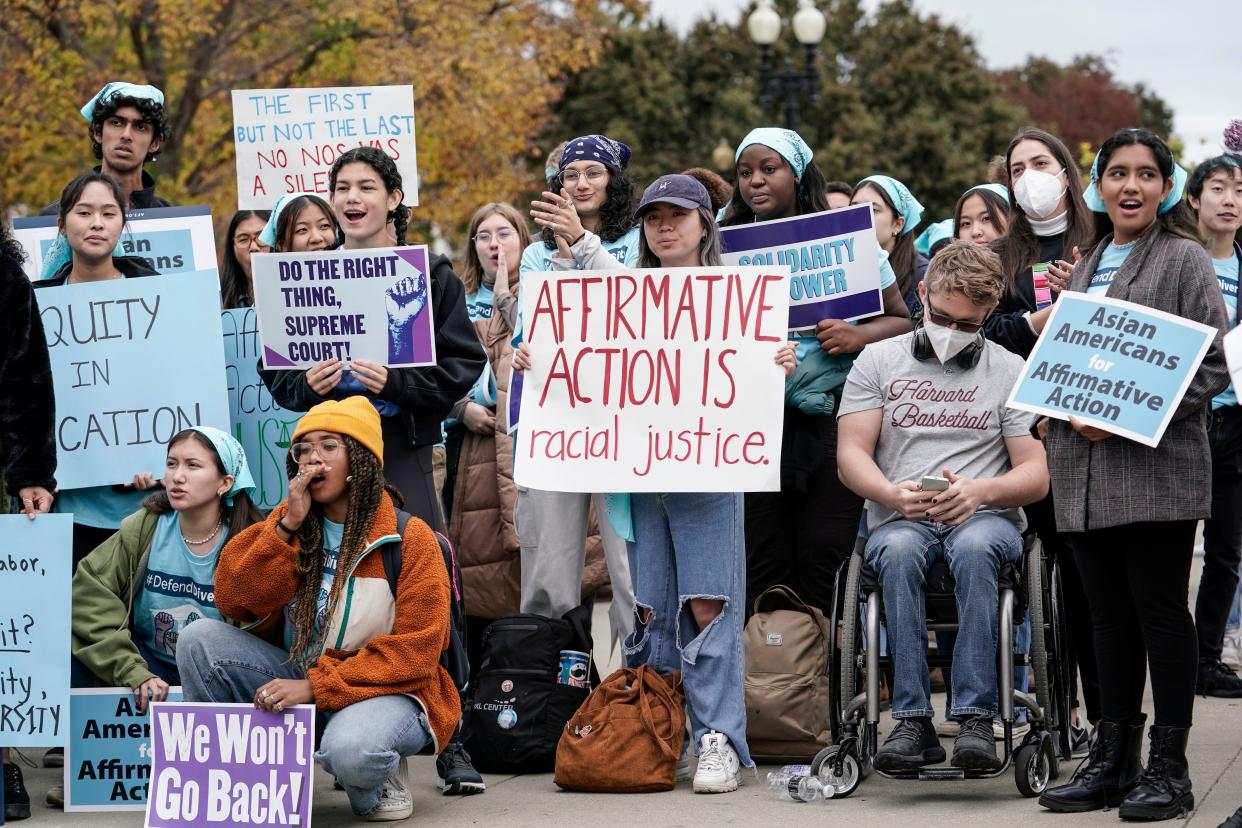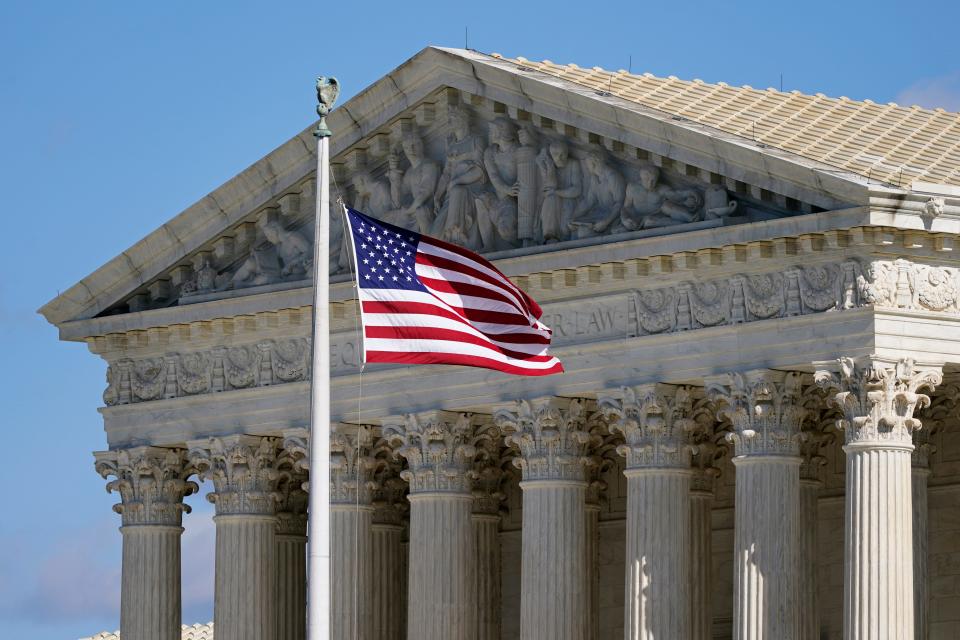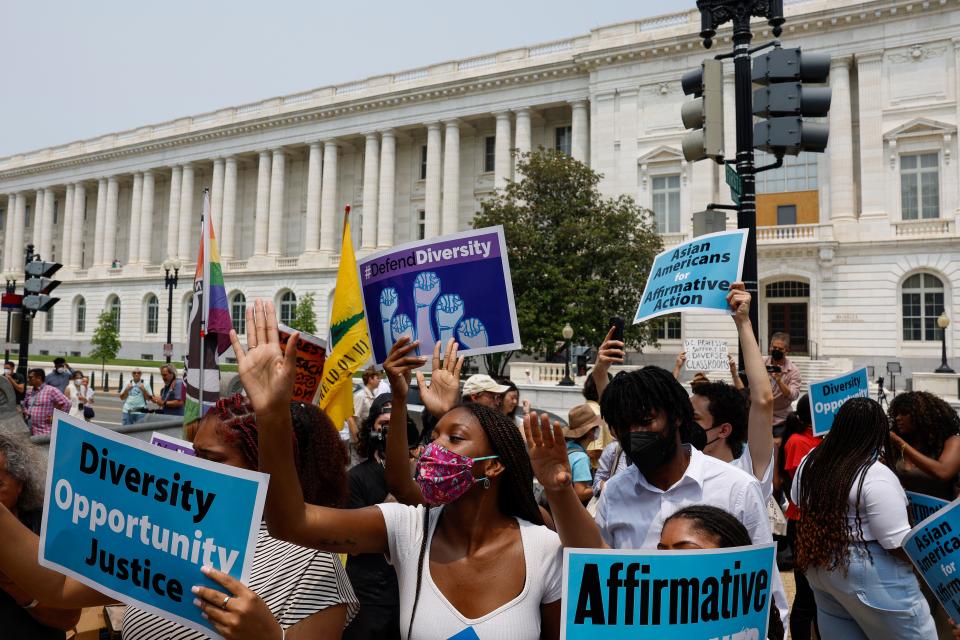Supreme Court bans affirmative action but legacy admissions remain untouched | Opinion

The recent decision by the U.S. Supreme Court to abolish affirmative action policies in race-conscious admissions while preserving legacy admissions supports the nonsensical belief that a race-neutral approach is truly impartial while prioritizing educating white and affluent students. This ruling has evoked intense outrage about the future of Black students' college admissions and degree attainment.
Affirmative action has been instrumental in fostering diversity within higher education and addressing historical inequities by providing increased opportunities for Black students who have faced unjust educational discrimination. This pivotal policy promoted inclusivity and served as a catalyst for expanding access to education.
The 1960s and 1970s were a tumultuous time for Black Americans. A notable shift in racial policies within the United States was seen in the Affirmative Action Act, Brown vs. the Board of Education and the Voting Rights Act. These policies expanded the goal towards equality for Black Americans − encompassing not just legal and social rights but educational and employment rights too.

In 1970, prior to the establishment of affirmative action in college admissions, white students comprised a staggering 91% of college enrollment. Systemic racism has been rampant, granting blatant privileges to whites while actively oppressing Blacks in every sector of life. The introduction of the affirmative action policy aimed to address disparities in access to higher educational institutions − a long-awaited hope for Black Americans. Despite this groundbreaking policy, racism persists and is visible today in college access, admission and student success.
The elimination of race-conscious admissions policies while preserving legacy admissions enrages proponents of affirmative action policies. Advocates are left confused after this ruling lacking legal clarity in determining the next steps to ensure Black students’ representation in higher education does not plummet. The Supreme Court barring colleges from considering race is another sad scourge in our country’s sordid racial history, which preserves the privileges of white and affluent applicants while negatively impacting Black students’ college admissions.
Legacy, or preferential admissions given to students with familial ties to university alums, remain untouched by the demolition of affirmative action. Applicants with parents who graduated from a university have a 45% higher likelihood of gaining admission to selective institutions than applicants without familial connections. Similarly, applicants with a sibling, aunt, uncle, or grandparent who graduated from a university are 14% more likely to be admitted than individuals without legacy connections.

Additionally, alumni parents are more likely to give generous donations having attended such elite universities than the parents of racial minority applicants. As universities work to satisfy alums, talented students find themselves disappointed after the denial of acceptance into preferred schools. The surge in intense competition among academically gifted high school seniors vying for admission to prestigious colleges and universities has left fewer opportunities for those without familial ties.
The Supreme Court's affirmative action ruling illuminated the injustice of legacy preferences in the admissions process at Harvard University. Court records revealed that from 2009-15, approximately 34% of applicants, who happened to be children of Harvard alumni, were granted admission. This figure contrasted with the mere 6% admission rate for non-legacy applicants. The 2027 Harvard class admitted 1,942 students, only 3.14% of its 56,937 applicants. These numbers are significant, highlight a great disparity, and play a significant role in shaping the demographics of incoming student populations at prestigious institutions.
The case for maintaining race-based admission is abundantly clear − Black students' access to selective institutions is crucial in ensuring diversity and equity in higher institutions. We only need to look at the cautionary tale in the University of California education system. Following the enactment of California's Proposition 209, banning race-based admissions, a significant and continuing decline in the number of Black and Latinx applicants within the UC system is seen. Sadly, abolishing affirmative action policies in higher education will assuredly result in swift reductions of culturally rich, diverse students on college campuses, perpetuating educational inequities eerily reminiscent of years gone by.
Cindy White Jones is a doctoral student in the Urban Education Leadership, EdD program at the University of Cincinnati and a member of the 5th cohort of School Board School.

This article originally appeared on Cincinnati Enquirer: SCOTUS bans affirmative action but legacy admissions remain untouched

